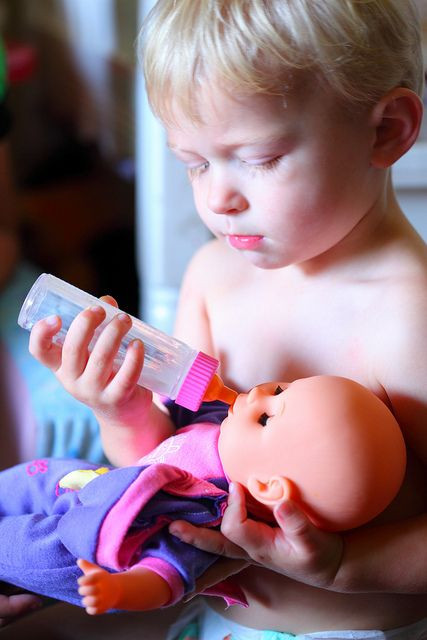Experts Argue Over How Much Vitamin D Is Right For Infants

Infant vitamin D recommendations have always been a topic of debate; one day it's high dose, next day it's not enough. Now a new study hopes to clear this up to some extent.
Researchers achieved this rigorous task by supplying different babies varied doses of vitamin D then determined which dose provided the target amount of vitamin D needed in the blood. They found that 400 IU of vitamin D is sufficient for recommended NIH levels in infants age one or younger.
"There's sometimes a feeling that more is better," said Hope Weiler, lead author and professor at the School of Dietetics and Human Nutrition at McGill University. "But until now, no one had compared the popularly recommended daily doses of vitamin D to see what will result in optimal health for infants, so we were very glad to be able to do this."
The Centers for Disease Control and Prevention emphasizes that vitamin D from breast milk is not enough since a vitamin D deficiency rickets, or bone softening, were reported among the population of breastfed infants in the United States.
In the study, investigators recruited 132 infants from Montreal. For 12 months, the infants were randomly assigned and given different doses of vitamin D per day: 400 IU, 800 IU, 1200 IU and 1600 IU. They also measured their weight, length, circumference of the head and vitamin D levels during month three, six, nine and 12, and closely monitored any levels of mineral growth.
At three months, infants showed the targeted amount of vitamin D in blood levels with a 400 IU dosage, indicating it was enough, while higher levels of vitamin D in the blood was discontinued because it was associated with hypercalcemia, or high levels of calcium in the blood.
"Thus, the primary outcome was not achieved at 3 months, when plasma 25(OH)D concentrations were highest; all dosages failed except the highest dosage, which appears to be too high," the authors said.
Although infants in this study had good vitamin D levels prior to participating, researchers hope to analyze recommended dosage of vitamin D for infants who had deficiencies since birth.
"Additional studies are required before conclusions can be made regarding higher targets or the needs of high-risk groups," the authors said.
Other experts are saying that if the infant needs higher doses of vitamin D, the 400 units will not be enough.
Health care providers recommend a vitamin D supplements babies within the first 12 months because that's when they're developing the quickest and it's an important source for bone growth.
Recommended doses vary in other countries. France and Finland, for example, recommend 1,000 IU for infants while Canada asks for 400 IU. The winter cold also calls for higher doses of vitamin D since there's less exposure to sunlight.
The study will appear in the May 1 issue of the Journal of the American Medical Association.
Published by Medicaldaily.com



























